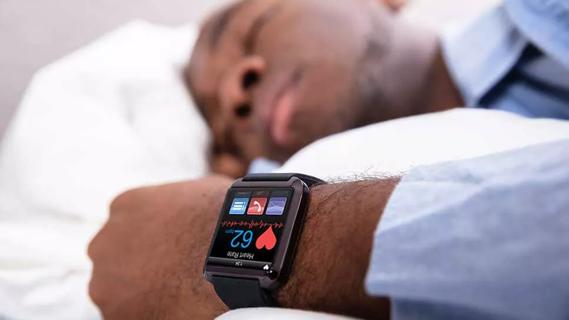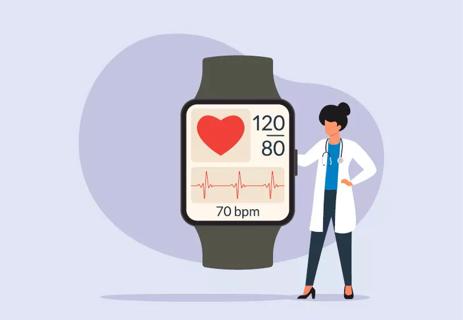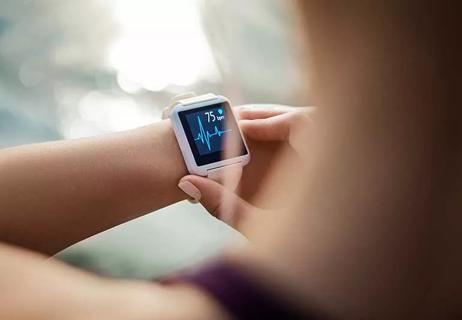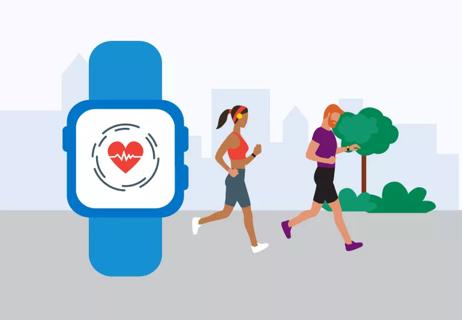A resting heart rate below 35–40 beats per minute or over 100 beats per minute may be cause for concern

When you’re sick, you might wonder if you’re bad enough to go to a healthcare provider or if you can just wait it out at home.
Advertisement
Cleveland Clinic is a non-profit academic medical center. Advertising on our site helps support our mission. We do not endorse non-Cleveland Clinic products or services. Policy
But when it comes to matters of the heart, time is valuable. If you’re experiencing an abnormal heart rate along with any associated symptoms like chest pain or dizziness that cause you any level of concern, you should seek medical attention right away. Doing so may allow healthcare providers to catch early signs of a heart attack or diagnose other conditions like heart disease before they take a significant toll.
Cardiac arrhythmia specialist Shady Nakhla, MD, explains when your heart rate can become a cause for concern, what symptoms you should look out for and why an official diagnosis from a healthcare provider is beneficial in any scenario.
You can check your heart rate by placing your fingers on your wrist or neck or by using a heart rate monitor or smartwatch to measure the number of heartbeats you have in one minute.
To start, sit down and do your best to feel calm for five to 10 minutes before taking measurements. If your heart rate is below 35–40 beats per minute (bpm) or above 100 bpm, it’s worth getting evaluated by a healthcare provider — especially if the measurements you’re getting are abnormal for you or if you’re recognizing these changes along with other symptoms, such as:
Advertisement
“If you detect an irregularity of your pulse, meaning it’s something new for you, you should seek care,” states Dr. Nakhla. And here’s why.
A quick hunt on the internet for “what is a normal heart rate” will lead you to several sources that all say roughly the same thing: The average resting heart rate for adults should fall within the range of 60–100 beats per minute. For children, those numbers tend to be higher.
But aiming for those averages can be a bit misleading if you’re not factoring in your individual characteristics like your age, weight, level of physical activity or the presence of any underlying medical conditions you may have, like:
All of these factors can have an effect on whether your heart rate increases or decreases over time.
Now, just because you’re outside of that 60–100 bpm range doesn’t mean you’re in imminent danger. An athletic person in their 20s, 30s or even 40s, for instance, might experience a lower resting heart rate that’s 50 beats per minute. Those numbers may not be alarming if that’s what they’re used to and they aren’t experiencing any other new or abnormal symptoms that are cause for concern.
“For athletes, their tissue, their muscles, their bodies are more efficient at handling oxygen, carbon dioxide and lactate, so it results in them not needing heartbeats as frequently,” explains Dr. Nakhla.
So, what’s normal for one person may not be normal for someone else. When it comes to your heart, understanding your personal health and keeping an eye out for specific symptoms and alarming concerns can be key.
“There are different types of abnormal heart rhythms, some of which are sinister and some of which need care within a couple of days,” stresses Dr. Nakhla. “Without knowing your situation and what’s going on, it’s difficult to provide an umbrella guideline for what’s considered a dangerous heart rate.”
In fact, there are a number of heart rhythm conditions that can all have an impact on your heart rate without you ever knowing it until you’re diagnosed. Some of these heart conditions include:
“It’s reasonable to seek care if you experience a resting heart rate that’s less than 35–40 beats per minute or a resting heart rate that’s greater than 100 beats per minute,” says Dr. Nakhla.
Advertisement
“If you experience something that’s abnormal for you, then you should seek medical attention so a healthcare provider can diagnose what’s causing your symptoms or what might be leading you to having a higher or lower heart rate than what you’re used to.”
And while there are some things you can do at home to help calm your nerves or lower your heart rate, Dr. Nakhla strongly encourages everyone not to sit by and put off a diagnosis for any reason.
“For someone who hasn’t established a diagnosis, the concern is that something could be life-threatening and it wouldn’t make sense for you to try these other things until you know for certain what’s happening and you get guidance from a physician,” he says.
“For all we know, there could be an electrical short circuit that’s happening that’s causing you to have the fast heart rate. And without knowing what it is, we can’t really tell you what to do with 100% certainty.”
Advertisement

Sign up for our Health Essentials emails for expert guidance on nutrition, fitness, sleep, skin care and more.
Learn more about our editorial process.
Advertisement

Your pulse and heart rate measure different body processes, but in most cases, they’re the same number

Deep breathing, yoga and meditation are just some ways to bring your heart rate down right away

Lifestyle changes can help strengthen your heart so it doesn’t have to work as hard when your body is at rest

Your heart rate naturally slows down while you sleep, but lower numbers aren’t always concerning

Both are related to your cardiovascular system, and both can impact the other

60 to 100 beats per minute is ‘normal,’ but you can still be healthy outside that range

Bradycardia, or a low heart rate, is more likely as you age — and could be a sign of health issues

Setting a max heart rate for kids can be tough, so focus more on how they feel during activity

Even small moments of time outdoors can help reduce stress, boost mood and restore a sense of calm

A correct prescription helps your eyes see clearly — but as natural changes occur, you may need stronger or different eyeglasses

Both are medical emergencies, but they are very distinct events with different causes